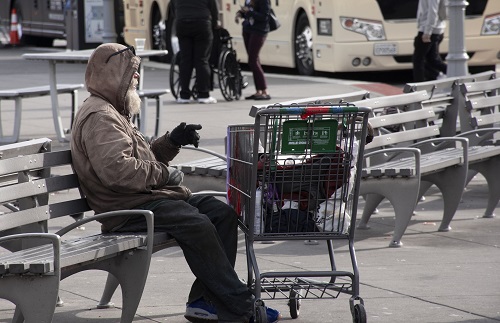Human services is one of the easiest online master’s degrees, but it prepares you to fight some of the most difficult social problems to solve. For students who want to make a difference, a graduate degree in human resources can help you start a career serving individuals and families affected by such problems as child abuse and neglect, homelessness, substance use, the challenges of dealing with disabilities and mental illnesses and other struggles facing different groups of people.
Child Neglect and Abuse
Many people who enter the helping profession of human services roles specialize in working with children and families, according to the United States Bureau of Labor Statistics (BLS). In particular, your role as a human services worker will help you protect innocent children from abuse and neglect.
Human services workers can help put an end to abusive or neglectful situations in different ways. Although the job can be emotionally difficult when having to recommend removing children from abusive homes, it can also be rewarding. For example, in situations where neglect is suspected, it can sometimes become clear that poverty, rather than willful mistreatment of a child, is the problem. A skilled human services worker can help families gain access to social programs and services they need so that the children can remain in their loving homes and get their needs met.
If a child must be removed from an abusive situation, a human services worker may be involved in finding an adoptive family and a forever home for the child, the BLS reported.
Homelessness
IMAGE SOURCE: Pixabay, public domain
Homelessness is a major problem, affecting 567,715 Americans in 2020, according to the National Alliance to End Homelessness. Not only are the homeless vulnerable to harm posed by the elements – like frostbite in winter and heatstroke in summer – but they also fall victim to violent crimes at a disproportionate rate. Once a person becomes homeless, it’s often difficult for them to get back on their feet. It’s difficult to apply for a job if you don’t have an address or to ace an interview if you have nowhere to get cleaned up and no professional clothes to wear.
A compassionate and resourceful human service worker can help break this cycle. Whether you’re only able to connect a homeless person with an organization where they can get a meal or you find them placement in a temporary housing facility or a job training center, you have the chance to make a difference.
If you want to use your master’s in human services to help the homeless, you might end up working for the federal, state or local government or for a nonprofit organization.
Substance Use and Abuse
Drug and alcohol addictions can tear families apart and ruin an individual’s life. Although a human services worker can’t replace physicians, nurses and other licensed healthcare providers who treat addiction as a medical condition, they can play an important role in lives touched by addiction. The tasks human services workers often field include assessing the needs of an individual with an addiction and getting them in contact with inpatient rehabilitation facilities, outpatient medical services for rehabilitation and community support groups, the BLS reported.
Because addiction affects the whole family, a human services worker is able to help other members of the family get any support they need. Human services workers may also help with job training and placement services if the addiction has cost the individual their job.
The Struggles Caused by Disabilities and Mental Illnesses
Living with a physical disability or a mental health condition can bring challenges that physically and mentally healthy individuals never even have to think about. Like other types of real-world problems, these challenges can affect a whole family. A family of a child or adult with a disability or a mental illness might need access to medical and rehabilitative services and much more. A provider in the family may need to choose between earning a living and serving as a caretaker. The individual with the disability or mental illness may have trouble accessing the care they need for the best possible quality of life, including pharmaceutical treatments, physical therapy, counseling, assistive devices and more.
Human services workers draw from a variety of services, programs and resources to assist individuals affected by a disability or mental illness and their families. Different clients may have different needs, ranging from medical and rehabilitation to housing.
The Unique Troubles Facing Vulnerable Populations
Finally, human service workers provide assistance to individuals and groups who are facing a variety of challenges. The elderly, for example, may be dealing with medical conditions that affect them cognitively as well as physically. Human services workers may be brought in to help coordinate services and assistance that allow a senior citizen to remain in their home as they age or to find residential care facilities like nursing homes, the BLS reported.
Many different groups encounter challenges adjusting to major life changes. Recent immigrants may need assistance in securing shelter and work. For veterans returning home from active duty in the military, the transition can be difficult – especially if the service member is contending with PTSD or other mental health conditions related to an experience they had while serving their country.
Another population human service workers can help is the formerly incarcerated. Once an individual convicted of a crime has served their time, readjusting to society can be difficult, and finding work and housing can be an even bigger challenge.
Additional Resources
What Is the Role of a Human Services Worker?
What Kind of Job Can You Get With a Degree in Human Services?

